About Vista Maria
Their residential program offers individualized care including individual, group and family therapy, trauma-informed care, medication management, and addiction education. In addition, residents have access to art and recreational therapy, on-campus junior and senior high school education, spiritual enrichment and
HIV/AIDS counseling and testing. There are several transitional living programs. One focuses on youth finishing the residential treatment program, another is for those aging out of foster care, and one is for young people who have not been successful in foster placement.
Vista Maria may be able to work with major insurance providers such as Kaiser Permanente, Bright Health, Wellmark and HCSC. Please check with your individual provider to verify coverage and out of network benefits.
Latest Reviews
Thank you so much for reaching out and sharing your experience with us. I'm truly sorry to hear about the challenges you’ve faced recently, especially after being involved with Vista Maria for so many years. Your concerns are so important, and we take them very seriously—especially when it comes to ensuring trust and consistency for the children and families we serve.
Our Director of Foster Care would really appreciate the opportunity to speak with you and learn more about your experience. Please don’t hesitate to reach out at (313) 203-4950, and we’ll make sure your concerns are addressed. You may also email info@vistamaria.org (which is checked daily by a real person), and I can connect you with the director by email, if you prefer.
Thank you again for taking the time to share your feedback. Because of voices like yours, we can continue to enhance our services and better serve our community.
Rehab Score
Gallery

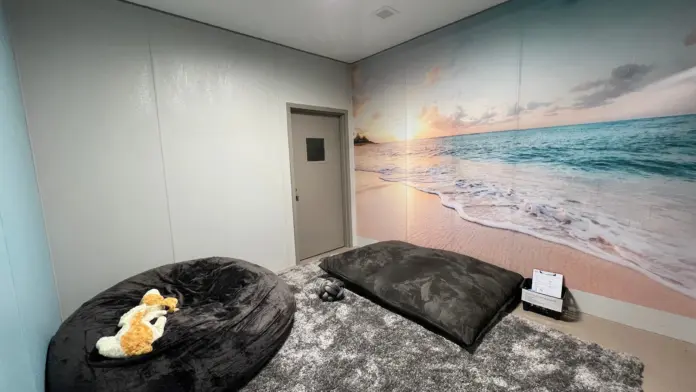
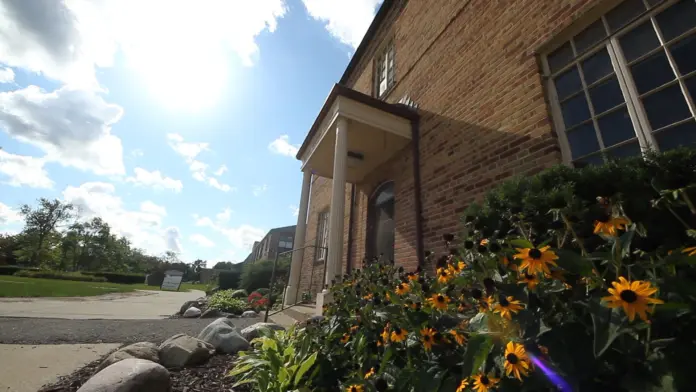
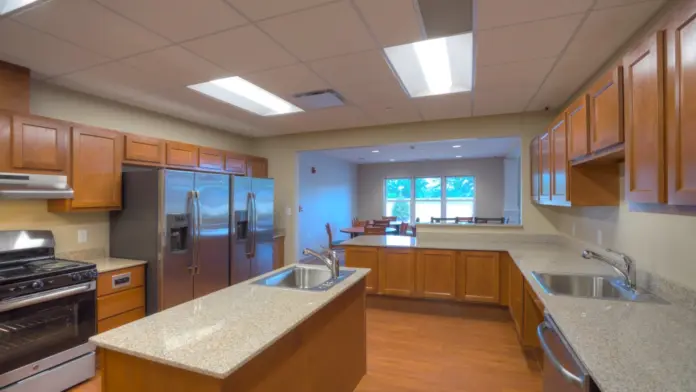
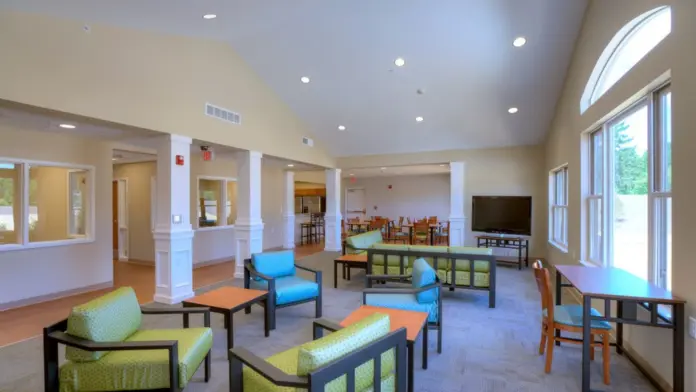

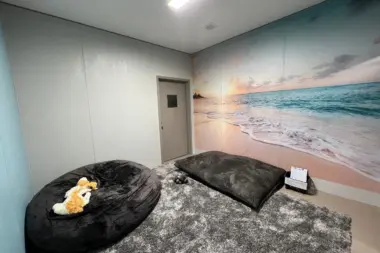
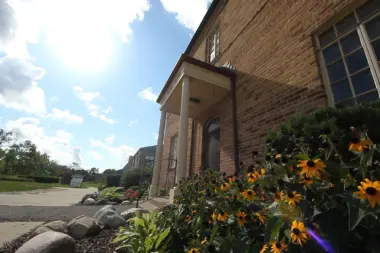
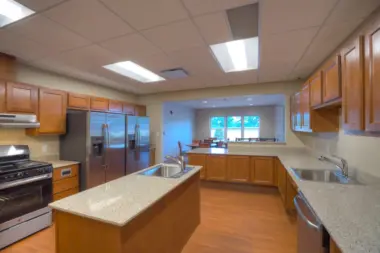
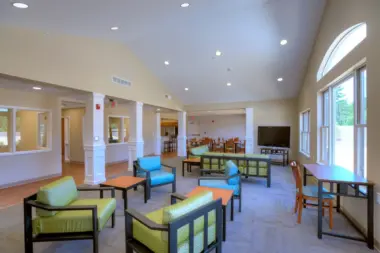
Other Forms of Payment
Private insurance refers to any kind of healthcare coverage that isn't from the state or federal government. This includes individual and family plans offered by an employer or purchased from the Insurance Marketplace. Every plan will have different requirements and out of pocket costs so be sure to get the full details before you start treatment.
Self-pay involves paying for treatment out of your own pocket. You can use savings or credit, get a personal loan, or receive help from family and friends to fund your treatment. If you don't have insurance or your insurance plan doesn't cover a specific program, self-pay can help ensure you still get the care you need.
Financial aid can take many forms. Centers may have grants or scholarships available to clients who meet eligibility requirements. Programs that receive SAMHSA grants may have financial aid available for those who need treatment as well. Grants and scholarships can help you pai for treatment without having to repay.
Medicaid is a state based program that helps lower-income individuals and families pay for healthcare. Medicaid covers addiction treatment so those enrolled can use their coverage to pay for rehab. When a program accepts Medicaid the client often pays very little or nothing out of their own pocket.
Addiction Treatments
Levels of Care
Clients in inpatient rehab reside at the treatment facility while engaging in intensive daily treatment. Inpatient care is primarily designed for clients leaving detox, those in early recovery, and those at an elevated risk of relapse. Clients participate in intensive addiction counseling, which may include group and family therapy as well as one-on-one sessions. Recovery-focused life skills training is also often prioritized. Many inpatient rehabs offer evidence-based complementary therapies, such as yoga, meditation, art therapy, and animal therapy.
Clients engaged in a rehab aftercare program have already completed high-level treatment and have begun to develop essential recovery skills. Rehab aftercare services are designed to support clients' sustained sobriety as they reintegrate into their home, workplace, and community. Case managers, care teams, and clients design the customized service portfolio that will best support the client's long-term sobriety. Clients may receive peer coaching, 12 step program induction, vocational training, and relapse prevention services.
12 step programs are typically community-based and peer-led, though many rehabs base their treatment models on this approach. Participants engage in regular 12 step meetings, which are anonymous, free, and accessible multiple times a day, 365 days a year in most communities. Participants are also mentored by self-selected sponsors who support them as they work through the 12 steps of recovery, which include addressing the causes of the disease, taking personal responsibility, and relinquishing control.
During a drug intervention in Michigan, family, friends, and colleagues share in their own words how a person's substance abuse has affected their lives. An intervention must be carefully planned, with the goal of encouraging the individual to get treatment for their addiction. Many rehab programs offer intervention services to help families prepare for this confrontation and guide them through the recovery process.
24-hour clinical care in Michigan is essential for certain phases of recovery treatment. During detox, many physical ailments related to the detox process can be lethal if not treated. Having medical staff available at all times provides the proper care for safe detox. Medications and other treatment can also make the process much more comfortable and bearable.
Treatments
Many of those suffering from addiction also suffer from mental or emotional illnesses like schizophrenia, bipolar disorder, depression, or anxiety disorders. Rehab and other substance abuse facilities treating those with a dual diagnosis or co-occurring disorder administer psychiatric treatment to address the person's mental health issue in addition to drug and alcohol rehabilitation.
Mental health rehabs focus on helping individuals recover from mental illnesses like bipolar disorder, clinical depression, anxiety disorders, schizophrenia, and more. Mental health professionals at these facilities are trained to understand and treat mental health issues, both in individual and group settings.
Programs
Young adulthood can be an exciting, yet difficult, time of transition. Individuals in their late teens to mid-20s face unique stressors related to school, jobs, families, and social circles, which can lead to a rise in substance use. Rehab centers with dedicated young adult programs will include activities and amenities that cater to this age group, with an emphasis on specialized counseling, peer socialization, and ongoing aftercare.
Recovery is most successful when clients feel accepted and validated by their peers and treatment providers. Facilities that offer LGBTQ-inclusive programming are committed to creating a safe space where everyone can grow and recover without fear of judgment or discrimination. They will have dedicated policies in place to create a safe and supportive environment that fosters free expression.
Clinical Services
Cognitive Behavioral Therapy (CBT) is a therapy modality that focuses on the relationship between one's thoughts, feelings, and behaviors. It is used to establish and allow for healthy responses to thoughts and feelings (instead of unhealthy responses, like using drugs or alcohol). CBT has been proven effective for recovering addicts of all kinds, and is used to strengthen a patient's own self-awareness and ability to self-regulate. CBT allows individuals to monitor their own emotional state, become more adept at communicating with others, and manage stress without needing to engage in substance abuse.
Dialectical Behavior Therapy (DBT) is a modified form of Cognitive Behavioral Therapy (CBT), a treatment designed to help people understand and ultimately affect the relationship between their thoughts, feelings, and behaviors. DBT is often used for individuals who struggle with self-harm behaviors, such as self-mutilation (cutting) and suicidal thoughts, urges, or attempts. It has been proven clinically effective for those who struggle with out-of-control emotions and mental health illnesses like Borderline Personality Disorder.
Group therapy is any therapeutic work that happens in a group (not one-on-one). There are a number of different group therapy modalities, including support groups, experiential therapy, psycho-education, and more. Group therapy involves treatment as well as processing interaction between group members.
In individual therapy, a patient meets one-on-one with a trained psychologist or counselor. Therapy is a pivotal part of effective substance abuse treatment, as it often covers root causes of addiction, including challenges faced by the patient in their social, family, and work/school life.
During motivational interviewing, therapists express empathy, support self efficacy, and develop discrepancies. By using these techniques, therapists help clients reflect on their desires for change and understand why and how they should move forward with those changes.
Trauma therapy addresses traumatic incidents from a client's past that are likely affecting their present-day experience. Trauma is often one of the primary triggers and potential causes of addiction, and can stem from child sexual abuse, domestic violence, having a parent with a mental illness, losing one or both parents at a young age, teenage or adult sexual assault, or any number of other factors. The purpose of trauma therapy is to allow a patient to process trauma and move through and past it, with the help of trained and compassionate mental health professionals.
Whether a marriage or other committed relationship, an intimate partnership is one of the most important aspects of a person's life. Drug and alcohol addiction affects both members of a couple in deep and meaningful ways, as does rehab and recovery. Couples therapy and other couples-focused treatment programs are significant parts of exploring triggers of addiction, as well as learning how to build healthy patterns to support ongoing sobriety.
Research clearly demonstrates that recovery is far more successful and sustainable when loved ones like family members participate in rehab and substance abuse treatment. Genetic factors may be at play when it comes to drug and alcohol addiction, as well as mental health issues. Family dynamics often play a critical role in addiction triggers, and if properly educated, family members can be a strong source of support when it comes to rehabilitation.
To maintain a healthy and productive life, you need certain life skills. They help you make good decisions and build good relationships. Because they are key to long term recovery, most rehab programs in Michigan include integrated life skills training.
Substance abuse negatively affects your nutrition. Some drugs affect your metabolism, while others affect how your body absorbs nutrients. Others suppress your appetite. To restore balance to your systems, nutrition therapy provides a healthy meal plan and training for how to eat the right foods to support addiction recovery.
Amenities
-
Private Transportation
-
Residential Setting
-
Private Rooms
Staff

Kimberly Tyle, CFRE
Chief Development Officer

Megan Zambiasi, MA, MBA
Chief Executive Officer

Kathy Regan
Chief Financial Officer

Meredith Reese
Chief Operating Officer

Amy Scurlock, MSM, HRM
Director of Human Resources
Contact Information
20651 West Warren street
Dearborn Heights MI, 48127